When things don’t go to plan in your independent retail business, Tower Systems is there to help
Small business POS software user meetings start today, in Brisbane
Tower Systems has announced details of its first series of face to face user meetings for 2017. This is the company putting itself in front of customers in key locations.
We have scheduled sessions for Brisbane, Sydney, Adelaide, Perth and Melbourne, starting March 27, 2017.
Our first meeting starts today, in Brisbane.
We will demonstrate the new look and feel of our Retailer POS software, our Shopify / Magento and Woo Commerce integrations, our Xero integration and much more. Plus there will be time for your questions. Free training. An opportunity to pitch your suggestions.
This is an excellent chance to leverage more from your relationship with us. Click here to book and see venue details. Yes, we will announce more dates soon.
This is an excellent opportunity to learn more about the software, discuss change requests and provide feedback on our services.
It is rare today that POS software companies offer sessions like this, except from Tower Systems – we do it regularly as a core customer service offering.
We ae grateful to our customers for their support.
Small business retail management advice – how to prepare your retail business for sale
Selling a an independent retail business is like selling a house, you need to prepare it so that it looks appealing to prospective purchasers.
The process of preparing a business for sale can take time, depending on the state of the business. It needs to start early and based on comprehensive planning.
Here is an overview of our advice and to what a small business retailer needs to do.
- Maximise profit. What anyone will pay will depend on the profitability of the business. While you should be on this every day, if it is a new project for you, start six months prior to putting the business on the market.
- Eliminate dead stock. It looks bad on the shelves and looks bad on the books. Purchasers should not pay full wholesale for inventory more than six months old as your poor buying or management is not their obligation.
- Streamline operations. Make the business look easy to run by ensuring it is easy to run for you. The easier it looks to run the more interesting to people who don’t understand the business.
- Make the business look appealing. Ensure displays are stunning, the shelves full and every pitch the very best you can make. You want them to want your business because they like it.
- Be happy. Owners who talk their business down will find it harder to sell the business. If you are complainer, keep it to yourself or in the family.
- Keep your social media presence up to date. Today, many people check out a business online prior to looking at it in-store. Maintain up to date Facebook and other social media presences.
- Choose your broker carefully.
- Get your paperwork in order. Early on, get business documents together and check:
- Premises lease.
- Equipment lease documents.
- Franchise document.
- Supplier agreements.
- Details of any forward orders.
- Any other documents relating to the operation of the business including manuals for any equipment items.
Success at selling your business depends in part on the work you do to prepare it for sale. Extra focus now can help you get timely price satisfaction.
This is another way Tower Systems helps small business retailers.
Tower Systems helps Queensland small business retailers pitch for a government grant
Tower Systems has been assisting small business retailers to apply to the Queensland government to tap into the next round of small business digital engagement grants.
The assistance from the team at Tower has been structured and comprehensive and delivered over the last two months leading up to the deadline on the next round of digital grants from the Queensland government.
As a full service small business support company with extensive business advice services, Tower Systems has the resources, experience and skills to genuinely help beyond the software so small business retailers can leverage this opportunity.
We are grateful to prospective and current customers for engaging with us on this.
We love helping small business retailers access their business data from anywhere and at any time
Inspiring small business retailers through beautiful POS software
Here at Tower Systems our mission is to inspire small business retailers through beautiful small POS software backed by business transforming support.
Why my software company is not embracing the new lower Sunday penalty rates in our own retail business
Tower Systems owns and operates retail businesses in part to provide us with practical experience on which we can draw to provide better software support experiences for our small business retail customers.
Here are my reasons, as owner of the company, for deciding to not embrace the Sunday penalty rates decision in my retail businesses:
- I value my employees. To pay them less as a result of the decision could suggest to them they are worth less. I have hated it when suppliers reduced margin or commission and argued then that they value me and my business less.
- I want to be competitive for good labour. Paying a competitive rate is key to this.
- The business reward. It is open to employees who are now told their pay will not be cut to return the favour to the business.
- Competition. A range of competitor business have made a similar announcement.
- While of economy fairness. While I agree with the decision, it should only be taken as a whole of economy review that fairly adjusts economic touch-points for all and not only salaried workers.
- Weighing everything up it is the right thing to do.
This is not a permanent decision. It is possible I will modify my position as the marketplace situation evolves. If I did and thereby embraced a saving in labour costs, I anticipate through would be invested in more hours.
All business owners need to reach their own conclusions on this matter. Unfortunately, as a country we are bereft of leadership on broader issues that should be confronted in any economic setting adjustment as has been done with Sunday penalty rates.
Mark Fletcher
Managing Director.
The Shopify POS software link small business retailers love
The Tower Systems POS software Shopify link is another smart commercial link form Tower Systems. The link connects to this professional and popular e-commerce platform.
Retailers should only ever go with well-known internationally successful e-commerce platforms. Anything else can be problematic.
Shopify is one of the easiest ways to setup and run an ecommerce store. We think it provides you with the ideal place to create you first website and gain experience in the world of ecommerce. You have complete control over the look and feel of your online store and can instant access fantastic look themes to reflect the personality of your business. For more information visit www.shopify.com.au.
How does the link work?
The link works by using the TALink platform platform to connect to the shopify API and synchronise your data.
Stock
Retailer is your master stock database. You flag what stock items you want to appear on your shopify store.
Descriptions and extended descriptions are added as your titles and descriptions in Shopify. Newly flagged products are automatically added and if you edit items in Retailer you have field level control over how these are handled in Shopify.
Department and Categories
Your Retailer Departments and Categories become collections in Shopify. You can have a chose of either
Department level collections or category level, but not both. If you choose to synchronise either a department or category, your existing structure will be mirrored and managed in Shopify automatically. If, however, you decide not link your Department and Categories in Shopify, you can allocate collections manually to products once they are added.
Prices and Quantity On Hand
You have control over your webstore pricing from within the Retailer Stock Screen. Bulk updates of the webstore prices can be performed in Stock Manager. Once new prices are set, your web store is updated automatically. Quantity on hand is also managed automatically, when your sell or arrive an item into stock these adjustments are sent directly to Shopify. If the quantity on hand of an items drops to 0, the item is marked as out of stock in Shopify.
Images
The images you set against stock items in Retailer are automatically uploaded to your website. If images change, then old one is removed and the new one is added. You can upload as many images as you like per stock item.
Customers
Customers that purchase off your webstore are added as customers in your Retailer database, allowing you to track what they buy and market to them if you desire. Existing customers with an email address will also be added to your web store to facilitate easy sales if you choose.
Sales
Sales are downloaded on a periodic basis and imported into Retailer. They are imported into our Customer Invoice Maintenance facility allowing you to place orders and print invoices if needed. Once sales are imported it reduces your quantity on hand so you maintain accurate stock control. Sales can be allocated to a specific location.
Shopify is a dream too setup and connect with our small business POS software.
Australian POS software helps specialty small business retailers compete
The most effective ways small business retailers can compete with big businesses and online is through efficient operation, accurate data and customer service touch-points that add appreciated value.
Tower Systems only sells its POS software to small business retailers.
We believe in small businesses, their importance to local communities and their broader economic value.
Through our software, our personal in-store training, 24/7 human and locally based help desk service, regional user meetings, weekly online workshops and other touch-points we help small business retailers beyond what is usual for POS software companies.
Our company motto is we’re here to help. We take this seriously. Everyday, out motto challenges us to help our customers in ways they do not expect, ways beyond the software itself.
Founded in 1981, Tower Systems has evolved as technology has evolved. The software we sell today is generations away from where we started. We are proud to have served some of our customers for decades.
More than 3,500 specialty small business retailers in Australia and New Zealand use our specialty POS software.
To us, a specialty retailer is one that offers services unique to the channel, services that define the business. We embed in our software for each retail channel facilities that serve needs unique to that channel. We take pride in doing this and enhancing these channel-specific facilities as the needs evolve.
We appreciate software cannot stand still. Every year we release significant enhancements, serving the needs of our customers.
RETAIL MARKETS
There are versions of the software serving the business specific needs of:
- Jewellers
- Bike shops.
- Garden Centres.
- Book shops.
- Gift Shops.
- Homewares Shops.
- Produce businesses.
- Fishing and Outdoors shops.
- Newsagents
- Toy Shops.
- Confectionery Retail.
- Stationery retail.
- Pet Shops.
- Pet Grooming.
- Whole Foods Grocers.
- Swimming Pool Supplies.
- Firearms Retail.
- Adult Shops.
Linking directly to Xero enhances the time-saving gained through the software as well as facilitating the accuracy of data managed by the software.
Our Xero link provides for a data feed of sales as well as purchases.
With a CPA working full time in our business we are configured to provide a technical solution that has been overseen by our own Accountant, to ensure it is a viable solution for the small business retailers we serve.
INTEGRATIONS
Our Xero integration is one of many approved integrations provided by the software to serve the needs of retailers. Other integrations include:
- Tyro broadband EFTPOS.
- Links to all major banks through PC-EFTPOS.
- Magento e-commerce. Magento is an excellent platform for website sales for small to medium businesses.
- Shopify e-commerce. Shopify is an excellent entry-level solution for small to medium businesses.
- FlyBys in New Zealand.
- Transactor loyalty in New Zealand.
- Scale integration for selling by weight.
- Touch networks for vending event tickets, phone recharge, fishing licences and more.
CLOUD OR NOT
The Tower Systems POS software can run on the desktop or 100% in the cloud. Retailers decide what they prefer.
In its cloud offer, Tower Systems offers a 100% hosted solution running in a secure purpose-build location with high-level security and backup. This solution is offered on a SAAS (Software As A services) model with minimal on-boarding costs and a single monthly fee.
Retailers who prefer local control can purchase or lease-finance the software. Once acquired, there are no mandatory annual access fees.
This flexible approach to pricing provides retailers the maximum flexibility in acquisition model.
WHAT THE SOFTWARE OFFERS.
This is a comprehensive and flexible Point of Sale software package offering facilities in many areas of retail business operation.
- POS sale scanning.
- POS sales using user configures touch buttons.
- Tracking sales by employee.
- Control over the look and feel of the sale screen.
- Control over the look and feel of receipts.
- Smart receipts that add value to the customer experience with local knowledge, care instructions and more.
- Customer receipts that contain a $$ discount off the next purchase if loyalty engagement is achieved.
- Structured end of shift process to reduce mistakes and more easily track fraud.
- Employee theft mitigation controls.
- Inventory control.
- Multiple price levels for products.
- Multiple customer types.
- Customer marketing facilities to enable targeted marketing.
- Importing supplier stock files.
- Importing supplier invoices.
- Generating orders based on sales.
- Four different and valuable types of loyalty facilities.
- Comprehensive business performance reporting.
- Customer age controls.
- Serial number tracking.
- Repairs management.
- Product manufacturing management.
- Multiple POS terminals in a store.
- Multiple stores connected.
- More than 100 reports with extraordinary options to facilitate insights into the business performance.
PERSONAL SERVICE MATTERS.
Here are areas where the Tower Systems approach shines, where our personal service matters.
Our training is personal, one-on-one. It is delivered in-store, by someone with extensive retail experience.
Our help desk is based in hawthorn victoria. When people call, the call is answered by a human and not a computerised phone system. We believe in personal service.
Every week except at Christmas and Easter we offer free online training workshops where retailers can learn more and talk to each other about how they use the software.
Every customer has access to free one-on-one training year after year.
We regularly host user meetings around the country where people can meet our management and technical team in an open group setting for more free training and free assistance. We believe in making ourselves accessible.
WE ARE RETAILERS TOO.
We own and operate several retail businesses, providing us with experience every day that enables us to walk in the shoes of our customers. We also use these shops as test sites for early releases of software updates plus we are happy for customers and prospects to visit the shops and learn from what we do ourselves in leveraging the software.
THE CUSTOMERS ARE IN CONTROL.
At the Tower Systems website, click on Software Ideas to see our transparent approach to customer engagement on software enhancements. This is world-class.
Our customers can make suggestions. These are assessed to ensure they will actually work. All customers are then invited to vote on the suggestions. The more votes the faster we bring the suggestion to reality.
This is democratic software development in action.
We believe our customers know more about hat they need from their software than we do.
Retail business marketing tip: how to leverage low margin product in your shop
Many retail businesses are traffic and margin poor businesses. Such businesses high-risk businesses as most low margin products and services are delivering less traffic year on year … high-risk of financial failure.
In addition to low margin products and services experiencing traffic decline year on year, minimal or no retail price movement see a decline in margin in real terms. Further, too often we see the percentage cut by suppliers for selfish reasons, further diluting the value to the retailer.
But it is not all bad news with low margin products and services. If they are generating good traffic, the opportunity is to be proactive in leveraging that traffic. Here is a list of five must-do things to leverage this low value traffic in your business.
- Place at least one offer / stand at the door facing people as they leave. If you have room, have one stand / offer either side. Make sure the offer is easily understood and relevant.
- Use a portable table for pricing stock and other stock work and place this with a staff member doing the work during busy periods between the door and the destination for most traffic.
- For the highest traffic low-margin items, always pitch other products such that these destination shoppers see the other products.
- Always have an offer at the counter unrelated to the low margin destination purchase. Get creative as to how you pitch this at the lottery counter if you have Tatts.
- Establish a floor unit to guide counter traffic. the right type of unit is best used for holing products people are likely to purchase on impulse while standing in line to make their destination purchase. All sorts of retailers do this, even if they do not have the shopper to warrant such a floor unit.
Our advice is do all five of these things. If you don’t do some or all you are most likely only benefiting from destination business from low-margin high-traffic products and services and there is no upside in that.
For the record, margin poor products and services are those with a GP percentage of less than 50% in our view.
POS software Xero integration helps small business retailers save time and money
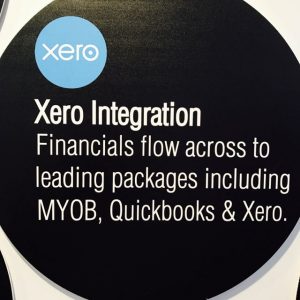 Xero is selective about the POS software businesses. Not all POS software companies make the cut. We at Tower Systems are proud to have made it around two years ago and our Xero community has been growing since. The result is a time saving opportunity for our customers, winning for them and for us.
Xero is selective about the POS software businesses. Not all POS software companies make the cut. We at Tower Systems are proud to have made it around two years ago and our Xero community has been growing since. The result is a time saving opportunity for our customers, winning for them and for us.
Using the Xero link our customers have direct and integrated access from our POS software to this world class accounting software that beats other accounting packages.
We speak highly of Xero as we user it ourselves in our own retail businesses. Our advice and support is based on our own experiences.
This personal experience as a retailer using our software and using Xero is any other valuable differentiator for Xero.
We are grateful to Xero for their support and appreciate the welcoming in their community.
Showing off our new POS software to small business retailers
Tower Systems is close to launching new fresh software for small business retailers with software for: gift shops, jewellers, bike shops, toy shops, fishing/outdoors businesses, garden centres/nurseries, pet shops, produce stores, firearms businesses and newsagents –
Book now for one of these free events. Any small business retailer is welcome. See the ne software. Engage in free training. Provide feedback.
- Brisbane. March 27. 11am.
- Sydney. March 28. 10am.
- Adelaide. March 29. 9am.
- Perth. March 30. 9am.
- Melbourne. March 31. 10am.
We will have senior management and technical people attending so any question or feedback will reach the right person.
The benefits of these sessions is they are live, face to face and easily accessible.
These sessions are in addition to our weekly live online workshops and our extensive trade show engagement.
Small business retail management tip from the Bra Bar
 We love the advice on HOW TO HAVE A LOVELY DAY written on the out the front of The Bra Bar in Perth.
We love the advice on HOW TO HAVE A LOVELY DAY written on the out the front of The Bra Bar in Perth.
This sign made a walk in Perth inspiring.
This is a lesson in how to market your business without directly promoting it. The advice could be provided by anyone in almost any situation. It is practical and accessible. The inspiration to have a lovely day is subtly connected to their business, not in your face.
Well done to the folks at The Bra Bar.
We have seen people use boards like this out the front of their shop for a word of the day or a quote or a joke. The Bar Bar sign is different, more personal – we guess as personal as the products they sell. They are speaking to you. That’s how it works for me.
Local retailers could do a sign like this have and wives under headings like:
- What we love about out town.
- We love our local heroes.
- Guess how many babies have been born here this year.
- Here’s a local tradition we bet you didn’t know.
- The oldest club in our area is…
Think of ideas for telling stories and sharing inspiration without overtly marketing your business. It’s a terrific way to get people on the street and in the mall to stop and notice you.
New POS software a hit with small business retailers
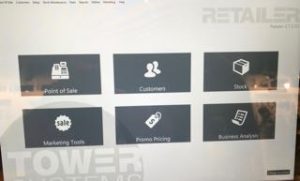 Our previews in recent weeks of our new POS software have been greeting with terrific feedback. We are both thrilled and grateful for responses from the customers we have been able to preview to for early feedback.
Our previews in recent weeks of our new POS software have been greeting with terrific feedback. We are both thrilled and grateful for responses from the customers we have been able to preview to for early feedback.
2017 is an exciting year.
New software offering fresh opportunities for small business retailers.
Small business POS software user meetings around Australia
Tower Systems has announced details of its first series of face to face user meetings for 2017. This is the company putting itself in front of customers in key locations.
We have scheduled sessions for Brisbane, Sydney, Adelaide, Perth and Melbourne, starting March 27, 2017.
We will demonstrate the new look and feel of Retailer, our Shopify / Magento and Woo Commerce integrations, our Xero integration and much more. Plus there will be time for your questions. Free training. An opportunity to pitch your suggestions.
This is an excellent chance to leverage more from your relationship with us. Click here to book and see venue details. Yes, we will announce more dates soon.
This is an excellent opportunity to learn more about the software, discuss change requests and provide feedback on our services.
It is rare today that POS software companies offer sessions like this, except from Tower Systems – we do it regularly as a core customer service offering.
We ae grateful to our customers for their support.
Tower Systems at the International Toy and Licencing Fair in Melbourne this week
Five free to implement marketing tips that will work for any small business retailer
Each of these five small business marketing tips has worked in a variety of retail businesses. They are fast to implement, easy to implement and are cost free based on the success they generate for small business retailers.
We have developed these five ideas through our many years only serving small and independent retail businesses. They are the best, easiest and fastest to engage:
- Immediate rewards. On your receipts. $$$. This gets shoppers spending more per visit. With the right settings, over the counter pitch and policies you can expect double digit growth for little effort. This loyalty program is a game changer for independent small retail businesses in that big businesses will not follow you, they will not be able to match what you pitch. This sets you apart. It excites shoppers and that is what drives the value you get from the program. We have it running in many hundreds of small retail businesses.
- Email marketing. Capture email addresses and email shoppers to pitch offers tuned to their interests. With an average response of 30% to the right pitch you can drive repeat visits.
- Product knowledge. Share this in receipts, automatically served based on products in a purchase. Shoppers will appreciate your help and extra-mile assistance. This is a perfect way to pitch one of your points of difference.
- Change the price narrative. If you have a nearby competitor, make price comparison difficult through multi-buy or BOGO pricing. Both are supported in our software. Make price comparison hard and increase sales as a result, of a perception of value.
- Smart placement. Your existing data can indicate what is best placed with what in your business. Leverage this data, make better placement decisions and increase sales. The deep dive basket analysis data insights can change your approach to product placement and increase shopper efficiency as a result.
Tower systems serves only independent small retail businesses in selected product niches. This is our mission and we are grateful every day for the opportunity.
Not your average POS software company
This video shows how Tower Systems is not your average POS software company. We are proud to serve our retail customers with practical advice and insights based on our own retail business management experiences:
Sharing retail trends insights with small business retailers
The one constant in retail is change. already in 2017 we see more evidence of that. Amazon opening in Australia, growth in online, the launch of several disruptor models targeting specialist retail channels … these are some of the challenges we have read about in the last few weeks.
It is easy to read of what big businesses are doing and feel demotivated for one’s small business. This can be as true for your business as it is for my small software company.
As small businesses the biggest advantage is our ability to move faster. While we made not have the budget or press attention, we can move faster, we can change faster.
Here at Tower Systems, change starts with understanding trends. Already this year we have had team members have attended five international trade shows – Atlanta Gift Fair, Paperworld in Frankfurt, Toy Fair in Nuremberg, Spring Fair in Birmingham and the National Retail Federation annual conference in New York. Each conference / trade show has provided insights we will leverage.
A couple of trends stand out.
- The first is the greater blurring of lines in retail niches. The bike shop is not a bike shop only, the jeweller is not a jewellery business only, the garden centre is not a garden centre. Being flexible beyond your traditional shingle is important.
- The second trend is about being local. Big businesses are structuring being local in a systemised way to capture shoppers who like local … even though the big businesses are not as local as locally owned small businesses. Now more than ever you need to leverage ways in your software to demonstrate you are local. Yes, Retailer helps you do this.
As we see it, goals for any small retail business this year have to include:
- Traffic. Finding new shoppers.
- Shopper value. Using every touch point possible to increase value of existing traffic.
- Efficiency. To eliminate out of date time wasting practices.
- Performance. To make decisions based on data facts and not gut .. cutting mistakes.
- Experimenting. The borders of specialty retail are gone. Play outside what’s been usual.
The biggest mistake we see made in small business retail is a lack of regard for accurate data. Customers of ours who respect data, reorder based on business, data, roster based on business data and plan based on business data usually have more successful businesses.
Online businesses, like of Amazon, are coming for high street retail. Being strong is crucial. Being smart is even more important … because Amazon and those in their league are smart.
In 2016 we released new facilities to help in some of these areas. In 2017 we have more coming. However, what you can achieve in your business in a marketplace driven by change depends on your business data.
If you want better data than you have today, we can help. We’d be glad to have the opportunity. It starts with you putting your hand up for help.
Retail management advice: How to prepare your independent retail business for sale
Selling an independent retail business is like selling a house, you need to prepare it so that it looks appealing to prospective purchasers.
The process of preparing a retail business for sale can take time, depending on the state of the business. The earlier you start the better.
The keys are too leave yourself plenty of time and have a plan. The advice we provide here is based on years of service to small business retailers across many different retail channels.
Here is our overview advice of what you need to do to prepare your independent retail business for sale.
- Maximise profit. What anyone will pay will depend on the profitability of the business. While you should be on this every day, if it is a new project for you, start six months prior to putting the business on the market.
- Eliminate dead stock. It looks bad on the shelves and looks bad on the books. Purchasers should not pay full wholesale for inventory more than six months old as your poor buying or management is not their obligation.
- Streamline operations. Make the business look easy to run by ensuring it is easy to run for you. The easier it looks to run the more interesting to people who don’t understand the business.
- Make the business look appealing. Ensure displays are stunning, the shelves full and every pitch the very best you can make. You want them to want your business because they like it.
- Be happy. Owners who talk their business down will find it harder to sell the business. If you are complainer, keep it to yourself or in the family.
- Keep your social media presence up to date. Today, many people check out a business online prior to looking at it in-store. Maintain up to date Facebook and other
- Get your paperwork in order. Early on, get business documents together and check:
- Premises lease.
- Equipment lease documents.
- Franchise document.
- Supplier agreements.
- Details of any forward orders.
- Any other documents relating to the operation of the business including manuals for any equipment items.
- Choose your broker carefully.
Success at selling your business depends in part on the work you do to prepare it for sale. Extra focus now can help you get timely price satisfaction.
Reinventing the POS software experience for small business retailers
We have begun previewing new-look POS software for our specialty retail marketplaces. This new look represents more than a year of work in design, development and testing. It offers our customers a fresh look, it keeps our software current with design standards relevant to retail in 2017.
This latest new look for our POS software continues the Tower Systems commitment to maintaining fresh and relevant software for our retail partners. It is what helps our software stay ahead, be loved by existing customers and winning the hearts of new customers.
The first personal previews of the new software started a week ago at the Sydney Gift Fair. They continue in a week’s time at the Melbourne Toy Fair. Then we will show the software off at our face to face user meetings around the country.
The new software is a result of terrific collaboration across multiple divisions of Tower Systems. It is a great team effort.
We develop, sell and support software for: gift shops, jewellers, bike shops, toy shops, fishing/outdoors businesses, garden centres/nurseries, pet shops, produce stores, firearms businesses and newsagents.
Six things to do before you choose a POS software company for your business
- Compare websites. Go deep. Look at ease of contact, support connections. Look for details of the real people being the business.
- Compare software. On your desktop, next to each other.
- Compare training. Sit in on a training session. Compare usefulness, professionalism.
- Look at online tools. get a login and see what real users see.
- Use it. In a shop,l behind the counter. See first hand the user experience.
- Learn the total cost of ownership. Get this in writing, for the first three years. See the real cost of owning each of the software packages you are comparing.
There is a huge difference between software products. These six points could help you avoid POS software that is not right for your business.


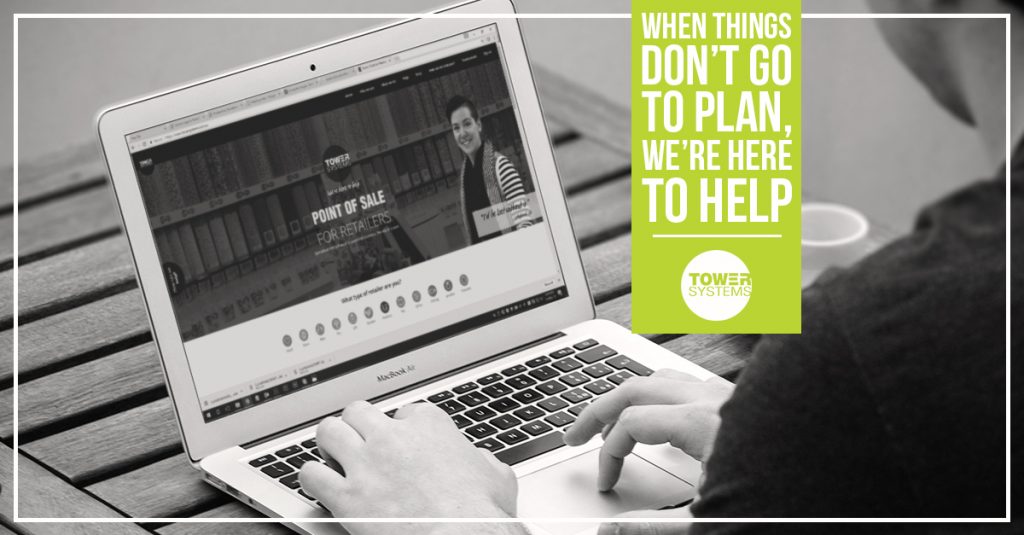
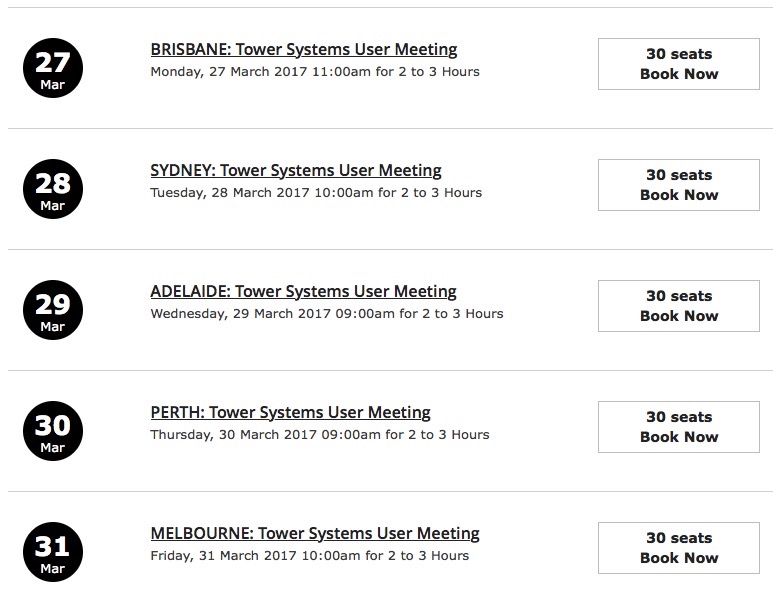
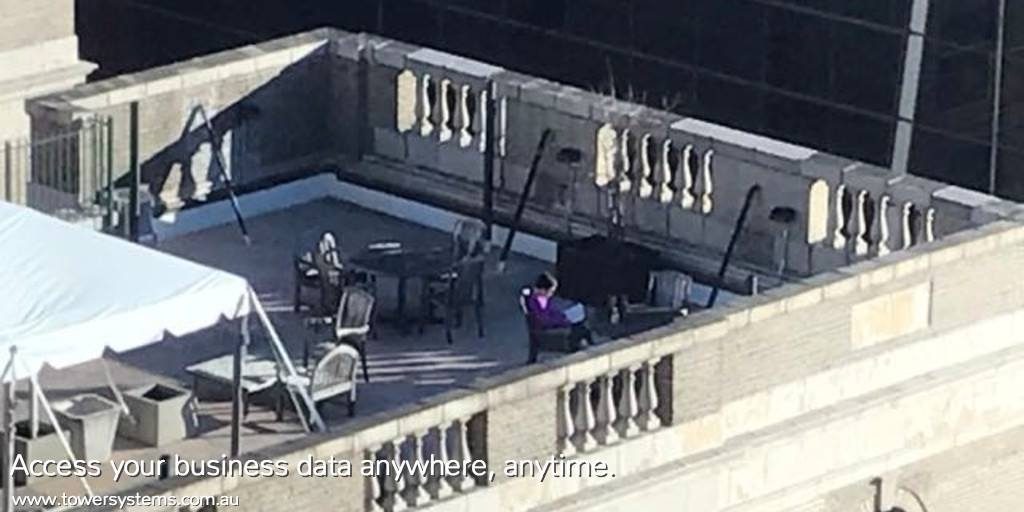

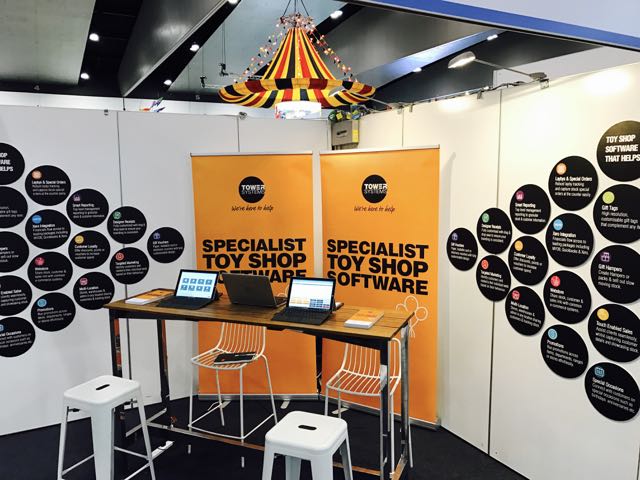
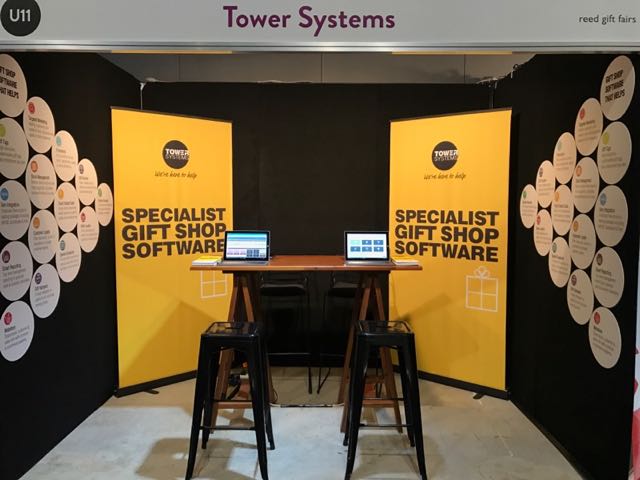
Recent Comments